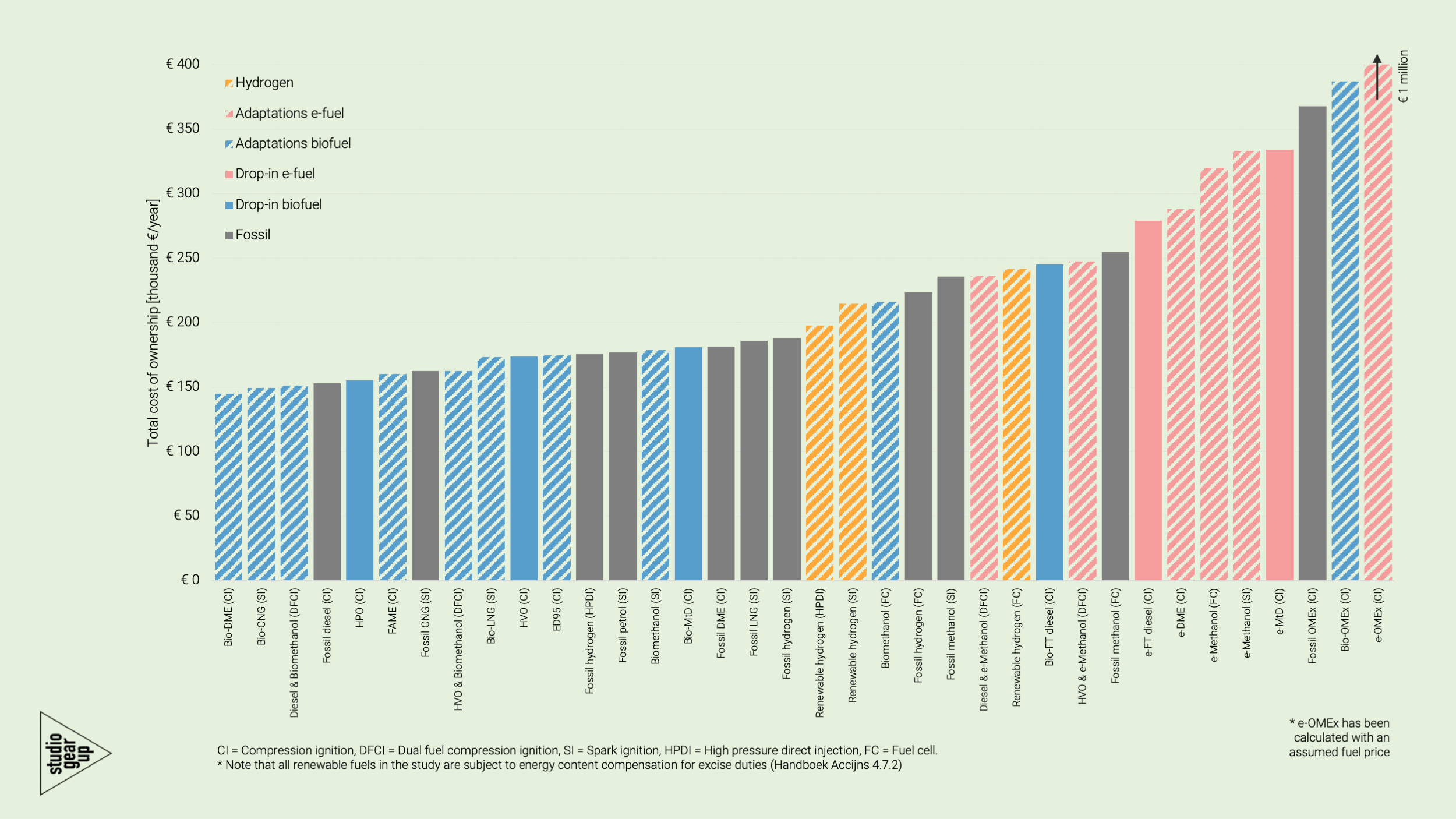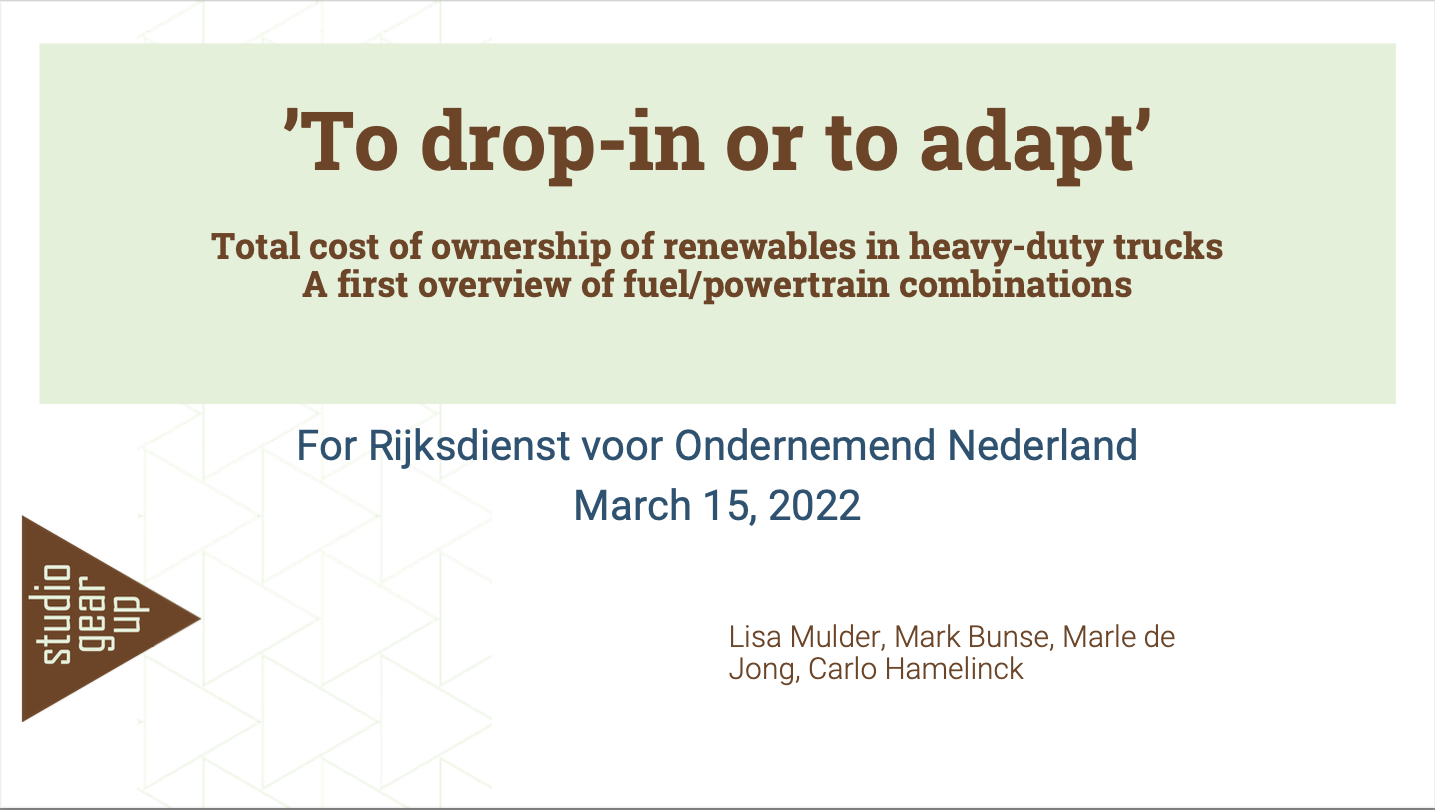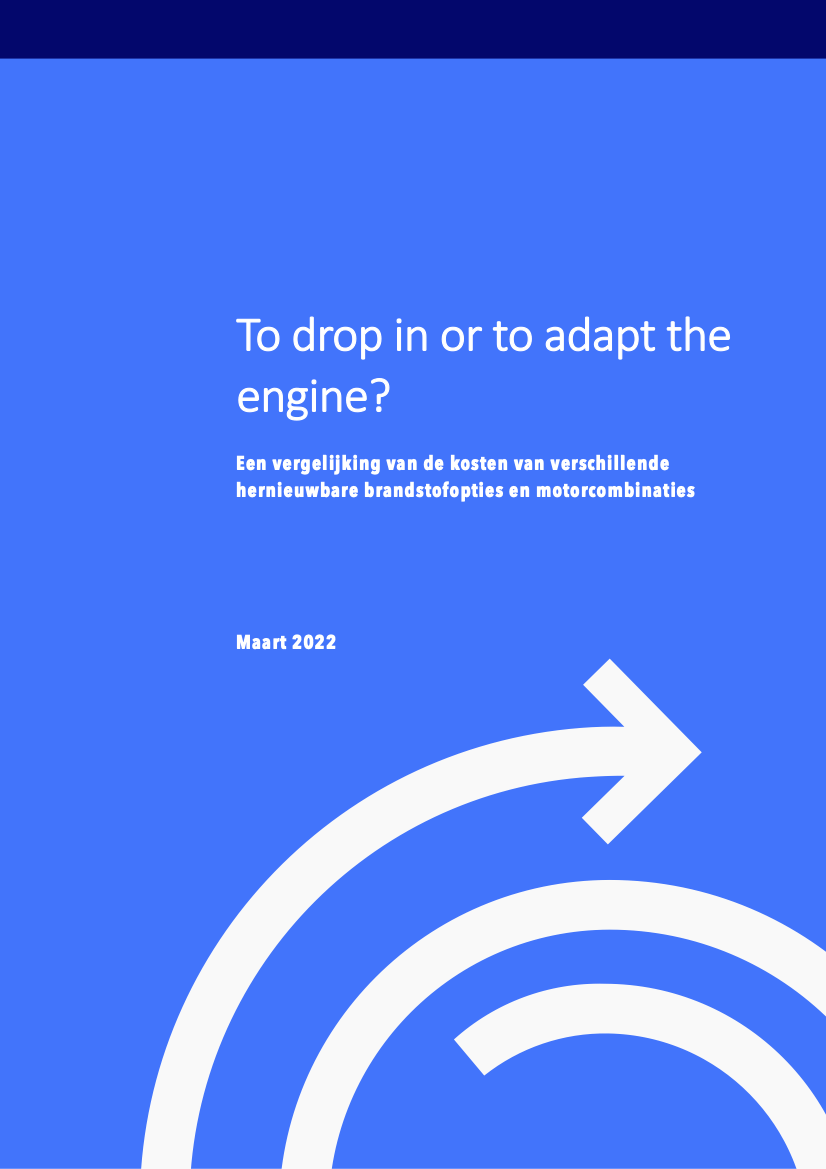Comparing total cost of ownership of renewables in heavy-duty trucks
For: Dutch Platform Renewable Fuels and RVO
[October 2021 – March 2022]
studio Gear Up performed a Total Cost of Ownership (TCO) analysis on long-haul heavy duty (40t) trucks in the Netherlands. The study was commissioned by the Dutch Platform Renewable Fuels and the Netherlands Enterprise Agency (RVO) to research the cost-competitiveness of renewable electricity or RED-Annex IX-A[1] feedstock based fuels for the Dutch transport sector.
The research has shown the potential of multiple cost-competitive drop-in renewable substitutes for diesel (for example, Hydrotreated Pyrolysis Oil (HPO), Methanol-to-Diesel (MtD) and biobased Fischer-Tropsch diesel, all based on Annex IX-A feedstocks). The study also looked at the e-fuel[2] conversion pathways of Fischer-Tropsch and Methanol-to-Diesel pathways. The drop-in e-fuel pathways are under the current conditions and assumptions considerably more expensive than their biobased counterparts. However, having the same conversion pathway opens up the possibility to use the technological developments of the biobased pathways to bring down the costs of the e-fuel pathways.
The analysis also shows the moderate impact of adaptations costs to the vehicle or engine on the total operational and investment costs for non-drop in renewable fuels. Bio-DME was one of the most cost effective options considered in this research, which needs limited adaptations to the traditional diesel engine.

Figure 1. Potential portfolio of options (either with drop-in fuels or adaptations of engines) available to reduce emissions. Various options perform below or near parity to fossil diesel. The options are including the Renewable Energy Unit (HBE) discount.
However, during the validation process with members of the Platform, Dutch market players mentioned the potential market barrier to bring adapted heavy vehicles to the Dutch market. The certification process for adapted engines is costly and requires time investments, while the Dutch heavy duty fleet is limited. This emphasises that renewable fuel developments need to occur on a European scale. Furthermore, adapting the vehicle after production is possible, but a complicated process for the currently dominant Euro VI engines.
The study furthermore concludes that it is essential to provide the market with renewable alternatives, before the proposed Emission Trading System (ETS) for the road and buildings sector is implemented. The prices of fossil fuels will rise due to the inclusion of costs associated with buying the allowances for the CO2 emissions. Furthermore, the study shows the positive impact of the proposed Energy Taxation Directive (ETD) on the position of Annex IXA and renewable electricity based diesel substitutes. With the lower taxation tariffs proposed by the ETD, more renewable alternatives become cost competitive with fossil diesel. However, this is under the condition of sufficient renewable volumes delivered to the market and infrastructure. If the renewable volumes are insufficient the prices of renewable alternatives might rise, and thus, fossil diesel remains the cheapest option for the heavy duty segment.
It is in the public interest to stimulate renewable alternatives and pathways for the heavy duty segment to ensure the possibility to move to low-carbon alternatives and reduce the CO2 emissions of the sector.
[1] Annex IX-A refers to a list of feedstocks mentioned in Annex IX of the Renewable Energy Directive of the European Commission (see Directive (EU)2018/2001). Biofuels produced from these feedstocks are defined as Advanced Biofuels.
[2] ‘e-fuels’ is the often used terminology for Renewable Fuels of Non-biological Origin. These are fuels that are form by using renewable electricity as energy source, and couple that in chemical process with a CO2-source to form a renewable hydro-carbon fuel.



